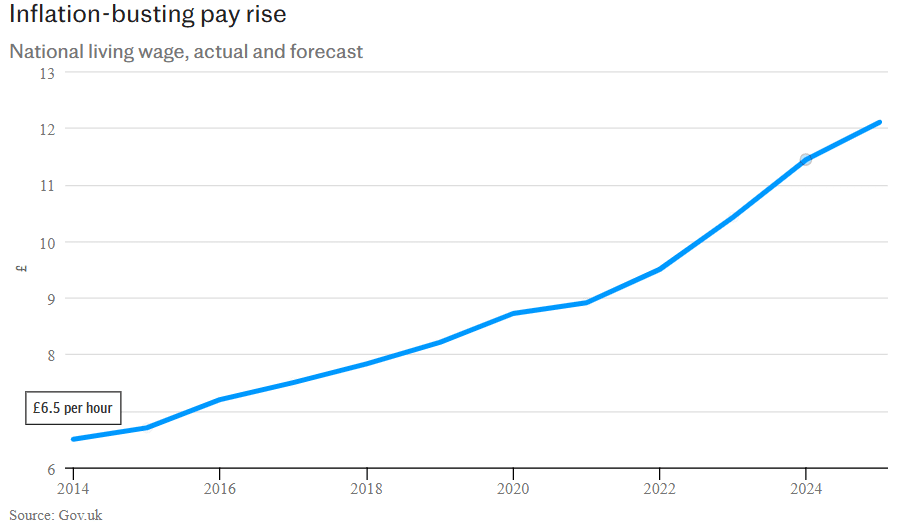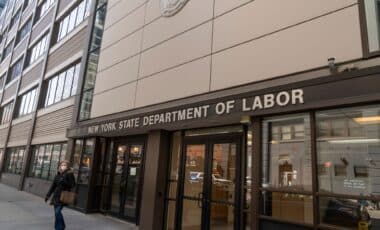Chancellor Rachel Reeves is set to announce an inflation-busting 5.8% rise in the minimum pay to £12.10, in a move that will cost employers an additional £6bn annually. This move, which according to estimates would benefit over 5.7 million employees in the UK, comes despite the fact that the inflation rate plummeted to 1.7% in September.
Pay Boost: Young Workers Set for Larger Gains
The proposed increase will add £1,100 to the annual salary of a typical minimum wageworker, according to analysis from Capital Economics. Paul Dales, the firm’s chief UK economist, notes that the widespread impact on workers at or near minimum wage levels will result in “an increase in total salaries of just over £6bn.”
In what seems to be a step in the right direction to meet Labour’s election promises, the younger employees could opt for an even higher percentage. The government proposes to repeal ‘unjust’ age brackets from the minimum wage formulation, which might benefit workers’ aged 18-20 by almost 8%.
“I’m very much expecting them to go further for young people… absolutely that is going to happen,” says Nye Cominetti, principal economist at the Resolution Foundation think tank. The current system, which sets lower rates for workers aged 18-20, is set to be replaced by a single adult rate.

Business Impact and Challenges
Businesses are in a really difficult position because this wage rise comes at a time of numerous cost pressures for them:
- An anticipated £20bn increase in employer National Insurance bills
- Up to £4.5bn in additional annual costs from the Employment Rights Bill
- Implementation of Deputy Prime Minister Angela Rayner’s workplace reforms, including extended sick pay entitlements and day-one worker rights
The Federation of Small Businesses has voiced significant concerns about the impact on smaller enterprises. Tina McKenzie from the FSB emphasised the need for government support: “Any increase to the National Living Wage must be accompanied by powerful government measures to help small businesses create and sustain jobs.”
Research from the FSB indicates that 79% of small business employers believe the Employment Allowance should rise in parallel with the National Living Wage annually.
Economic Implications
The Low Pay Commission’s expanded remit now includes considering living standards and inflation in its calculations. However, economists suggest this may have limited immediate impact, given that inflation has fallen steadily from its 41-year high of 11.1% in October 2022 to the current 1.7%.
IFS research economist Eduin Latimer warns of potential knock-on effects: “The evidence so far on minimum wage increases in the UK suggests that firms have absorbed costs of high minimum wages into profits and passed them on in prices.”
The LPC noted in September that their central estimate of 5.8% could increase further, citing stronger-than-forecast earnings growth in 2024.









